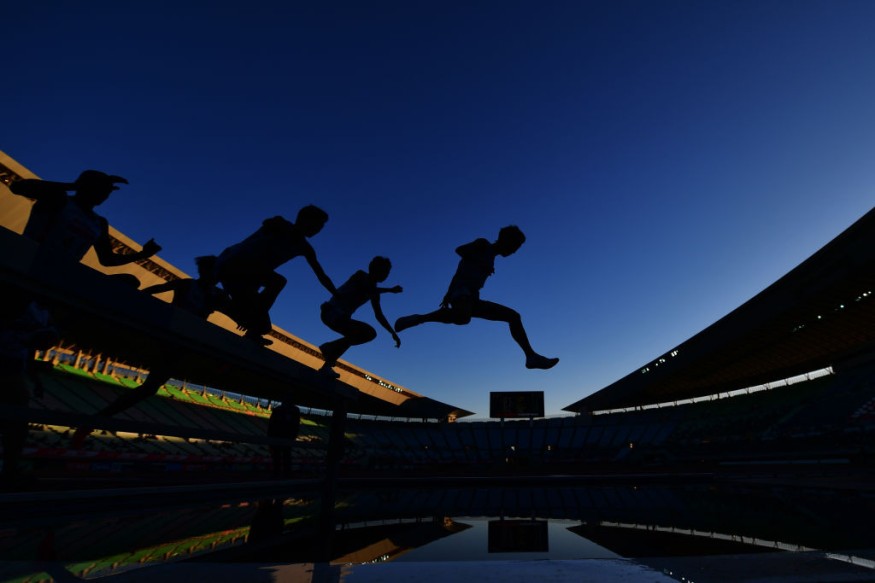
The life of an athlete revolves around maintaining a healthy physique and a healthy diet. A set of healthy diet tips play an important role by providing the essential nutrients, adequate hydration, and proper support to an athlete.
Athletes must always have the energy to endure in a competition. Some useful diet tips will be considered to help the athletes sustain energy during a game and lead an even healthier living.
1. Knowing the Food Energy
An average person can sustain an activity with less energy, but an athlete needs more energy. Athletes should be used to doing rigorous exercises as part of their training. More likely, a male athlete is required to have a kilocalorie count of 2,400-3,000, while the female athlete needs 2,200-2,700 kilocalories daily. The calorie intake varies on the food that is eaten. Specifically, the food should be rich in protein, fat, and carbohydrates to fuel up an athletic body.
Fat has the highest calorie content of 9-kcal per gram among the three macro-nutrient. Fats are the building blocks to support hormones, cell membranes, and other body substances. Healthy fats can be found in nuts, avocados, and healthy oils like coconut and olive. Vegetable oils are also good sources of fats: corn, soybean, and cottonseed.
Carbohydrates and protein have the same content of 4-kcal per gram. Carbohydrates are often aligned to a good and bad set of food. Healthy carbohydrates will give you the energy to stay throughout the day. Healthy carbohydrates can be found in fruits, vegetables, bread, and wholegrain cereals.
Protein, on the other hand, is vital for repairing body tissues. Some ideal dietary protein sources are dairy products (yogurt, cheese, milk), lean meats, legumes, and eggs.
Surprisingly, alcohol has 7-kcal per gram despite not being a macro-nutrient. It is key knowledge for the athletes to know that alcohol can pave the way to a sudden weight gain. Cross out alcohol for healthy diet tips.
2. Preparing a Balanced and a Nutritious Diet
Now that we know the first diet tip let's set ideal meals on the table. To plan a nutritious meal, an athlete should understand that a good combination of healthy food will yield a flourishing development of the body and the mind.
Possible breakfast setup
* Wholegrain/high fiber cereal + low-fat milk or protein-riched milk alternative.
* Wholegrain toast + low-fat cheese - sliced, cottage, ricotta, and tomato.
* Fruit toast + low-fat ricotta or fruit yogurt.
* Grain toast + shaved ham + tomato and mushrooms + avocado.
* Wholegrain toast + eggs (poached/ scrambled/boiled) + Spinach + Avocado.
Possible lunch setup
* Vegetable soup + ham and cheese toastie.
* Garden salad + sweet potato + cold cuts of meat or grilled chicken + drizzle with olive oil.
* Brown rice, couscous, or quinoa salad + fresh or roast veggies + lean meat eaten cold.
* Baked potato + baked beans or legumes + salad + avocado
* Wrap + lean meat or cheese + salad or leftover cooked veggies.
Possible dinner setup
* Stir fry vegetables + chicken, beef or pork + noodles or rice cooked with coconut oil.
* Lasagna made with low-fat cheese or ricotta, and salad to serve or include veggies in the layers.
* Curries made with lean meat, light coconut milk, lots of vegetables, and basmati rice.
* Homemade burger using a wholemeal bread roll + homemade rissole + salad vegetables + hommus or avocado as a sauce.
* Tuna in olive oil stirred through pasta + green beans or other veggies
3. Staying Hydrated
Another useful diet tip is adequate hydration. A rule of thumb for athletes is to drink only a small amount during the training. Specifically, an athlete should divide their body weight by 1/2 for a particular day. For example, if an athlete weighs 200 pounds, he/she should drink 100 ounces of water daily. It will be beneficial in maintaining body temperature and stability, especially during strenuous activities.
Other healthy drinks to stay hydrated are low-fat milk, natural juice, and electrolyte drinks like Gatorade, Pocari Sweat, and Blue.
4. Eating While on Travel
Athletes should prefer food that could boost energy, like hard-boiled eggs, non-sugary cereal, pita bread with grilled chicken, and wholegrain crackers paired with low-fat cheese. Remember that this food will come in handy to provide you the most convenient energy to be used later in the game. A fresh slice of fruit or vegetable will be your go-to snack.
5. Getting Ready for the Game
Remember that the goal of the athlete is to maximize the nutrient intake for body support. While the competition nears, an athlete should have followed the healthy diet tip prior. It is noteworthy for someone who will compete to never test a new set of dietary changes during the day. If you are planning to do it, experiment with that during the training to check whether it suits you well or not.
You should also lessen your meals as the game gets closer. Eat more carbohydrates than fats and protein because the latter two can trigger indigestion and muscle cramps.
READ MORE ON SWN:
Wrestler-Actor Thomas 'Tiny' Lister Jr. Dies at 62 From COVID Symptoms
© Copyright 2025 Sports World News, All rights reserved. Do not reproduce without permission.










